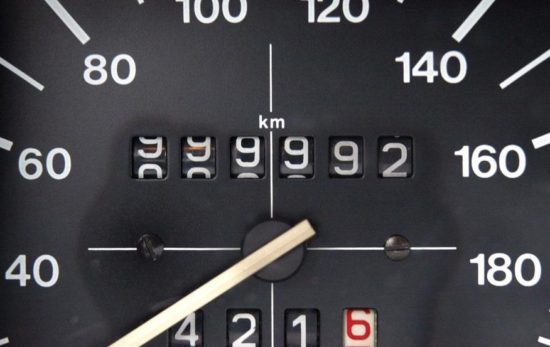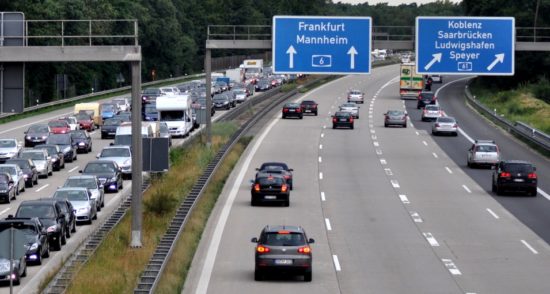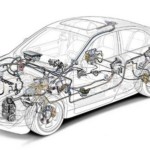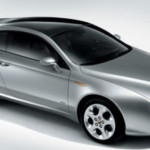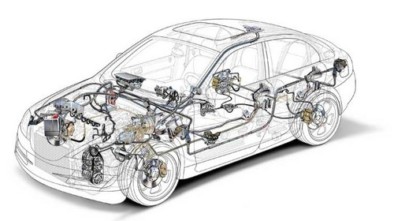High-mileage car - should we be afraid of it
A car that has covered 400.000 kilometers? He is "dying", many will say and turn their heads away from him like a leper: "It is not worth even a third of the price that the seller put in the ad. Only a crazy man can buy it. "However, they are often not even aware that their four-wheeled pets have in fact covered hundreds and thousands of kilometers from the" leper "".
The title of this text probably seems childish. What is the whole question? We are not afraid of high miles because we are timid, but simply know that the car is “spent” while driving and the more miles it travels, the closer it is to its final destination - auto waste.
That is why in the ads, depending on the age, we often skip those who have passed, for example. 170.000 km, and those with 250.000 km are terrified. Probably the engine is "in front of the general", who knows the condition of the nozzles, turbines and "floating"… In other words, "he must be extracted soul ".
However, practice shows that this approach is often wrong. The problem is that many customers they hold miles like a drunken plot, as if they deliberately forget that it can be reduced very easily and to diminish.
Driving off mileage is not just about our country, the Balkans, or Southeast Europe, it has become a mass phenomenon throughout Europe, where any owner can do this for twenty or less euros (depending on the vehicle and "market").
We do not point our finger at car dealerships! We just point to reality - mileage private car dealers are also taking it down. They take off both and abroad, in Germany, France, Italy, the Netherlands, Belgium, England… The same as those who buy a new car in Serbia, and then sell it after e.g. about ten years.
So there is no need for anyone to be called, accused or the like - this is actually a public secret, as if we were to "discover" that most blondes in Serbia are in fact painting!
Used vehicles are more durable than we think
Maybe a car to change three owners over a period of 15 years, the first two of which will take off mileage. Thus, the third owner of the vehicle will drive more than 500.000 km be convinced that his pet has traveled only 170.000 km and be totally disappointed with that model due to certain malfunctions / problems he didn't expect at that mileage.
It is because of situations like this still perpetuates the delusion that it is rare for a car to reach half a million miles. The same car that is already traveled more than 500.000 km, another 100.000 km may be driven, so it will be sold to someone who will go the extra mile.
In the end, he ends up with a driver who will be proud of how his pet has covered "only" 250.000 kilometers and how well he is holding on to that mileage. Or he will curse the day he bought it…
Old versus new
Due to the massive mileage skimming, we are mostly mistaken for a car after 200.000 or 300.000 km "done", which coincides with the real one "Shelf life" cars from the seventies, eighties and even the nineties.
However, the fact is that modern cars have a much better anti-corrosion protection (no rust) and the engines easily exceed 300.000, 400.000 and more miles without a general one, with serious failures usually caused by nozzles, turbochargers, pumps. swimming flywheel, EGR and other sensors and the like.
It is not the neck but the neck, you will think. We agree, you are right. Quite simply, a modern car is a very complex machine with many sophisticated elements, some of which are exposed to great stresses.
Then should I buy a used car at all?
Of course, because for infinitely less money, we can get to a car we could never afford if we insisted on a new one. It will be somewhat "outdated" when we buy it, the truth is, the interior will not be like new, the warranty will no longer be valid and there will be a greater risk of breakdowns, the most costly to us are the most expensive ones.
However, we will be able to drive a comfortable, fast and attractive car, which we were given e.g. for € 5.000, and a new one cost over € 30.000.
Certain repairs await us, there is no dilemma there, including those expensive. But we forget that it is these expensive repairs that so much drive down the price of used vehicles. Therefore, it is necessary to check well the condition of the half-carcasses, to evaluate what else on it can be broken in the following e.g. a year or two and then make a purchase decision.
So who can estimate what will break in the next year ?!
Anyone can estimate, and how accurate the estimate will be is another question. Joke aside, we may give another "xxx" euros for nozzles, "yyy" euros for a floating, "zzz" euros for a turbine… There are also a flow meter, "some" sensor and a couple of clamps, balls, bearings, discs, some cable, master cylinder, radiator, hose, windows…
Wait a minute! All of the above is breaking down on new cars too! Exactly so - the frequent "immersion" of the accelerator pedal at low rpm will cause the flywheel to "resign" very quickly, while without the driver's life it can take an extremely long time.
The same goes for a turbocharger - good quality engine oil, regular oil change, proper engine, letting the turbocharger cool down after a rough ride before turning off the engine, and it can also last very long without overhaul or replacement.
So mileage is not nearly a decisive factor when evaluating a vehicle's condition or estimating how much more it can use before it is ready for auto waste.
Is the problem only in mileage? Short and clear - ne.It's not the same:
- if the car is driven in Germany, 70% of the time on the highway, without bumps in local roads, and regularly serviced by an authorized service center, repaired exclusively with original spare parts, using quality fuel, etc.
- if the owner is arrogant and careless ("he didn't buy me, I bought him"), he spends most of his time behind the wheel in columns during Belgrade's rush hour, "breaks" it over manholes and potholes, doesn't change oil or filters regularly, no antifreeze, no spark plugs, pour diesel of dubious quality on "wild" pumps, install the cheapest or used parts alone or with a local "master" who leaves him old filters, pours "fake" oil (buys it "on the barrel")…
Conclusion
We advise you not to focus solely on mileage and age when shopping, which is most important to many. Do not throw off a car with a high mileage, as you may buy another with even greater but lower mileage. Much more important is the condition of the car.
So let's tell an anecdote:
An 8-year-old man is selling a car with 310.000 km driven. Car imported from Germany, used for two years in Serbia. In excellent condition, the engine is great, preserved interior, no scratches… However, no one calls, not even to offer a replacement for construction materials, some "rubble" at an additional cost or to halve the price.
He sees that there is no need for honesty, so reduce the mileage to 135.000 km and place a new advertisement with a price higher by a few hundred euros. The next day the phone started ringing and the car was soon sold.
This "story" is fictional, but you wouldn't believe how many such real stories there are „
Dragan Romcevic
Retrieved from: www.polovniautomobili.com
Recommendation of similar texts:

Hi there, I am Mladen and I am an auto enthusiast. I started this blog years ago to help like minded people share information about latest cars, car servicing ideas, used car info, exotic cars, and auto technology. You will find helpful articles and videos on a wide variety of cars - Audi, Mercedes, Toyota, Porsche, Volvo, BMW and much more. Ping us if you have anything cool to share on latest cars or on how to make older cars more efficient, or just want to say hi!

